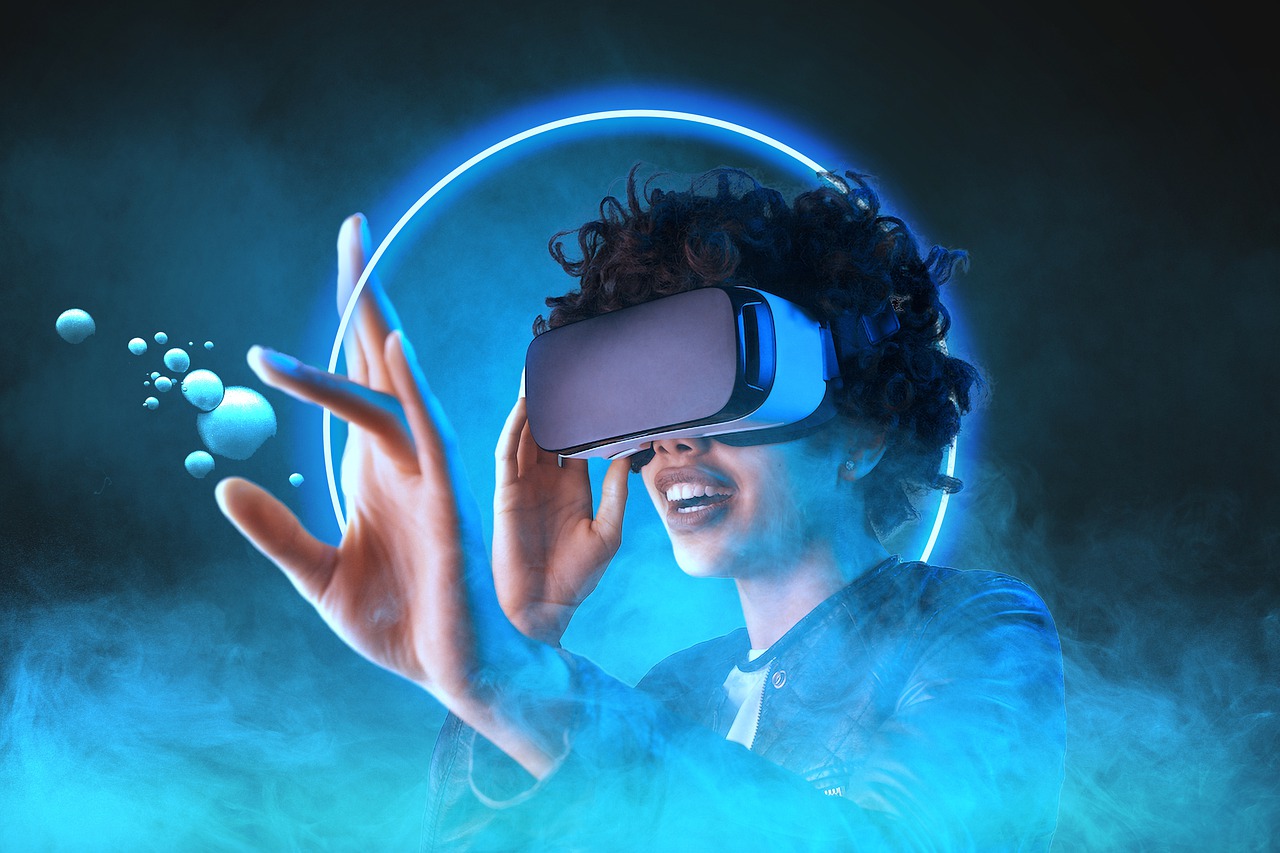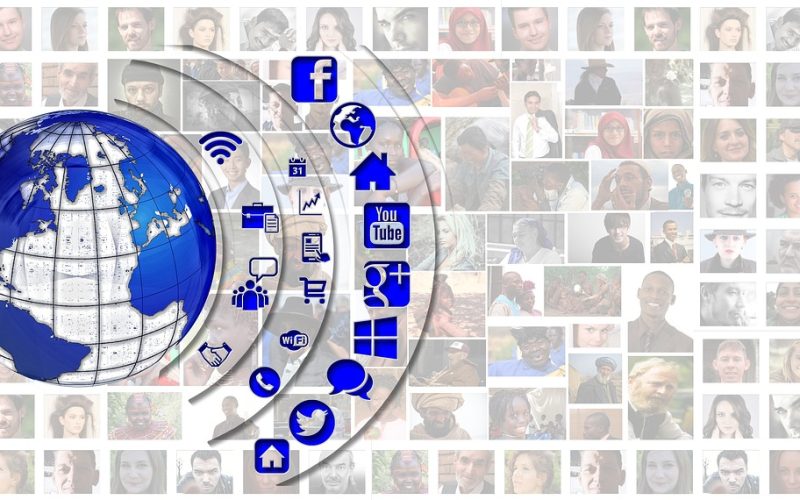The 2D internet we all use today will likely seem laughably old-fashioned in 50 years.
Not only won’t the internet exist behind a screen, but we’ll probably interact with it differently.
We’ll explore virtual reality (VR) worlds, use augmented reality (AR) to manipulate real-world objects, and meld the physical and digital worlds in novel ways.
Also Read: Who Was Albert Einstein?
What will that entail for the workplace, specifically? We are already moving away from the daily commute and rejecting the conventional office environment. This is due to a newfound love for, or tolerance for, virtual meetings and two years of pandemic lockdowns.

Will the Metaverse be Your New Workplace?
Working in the metaverse, a futuristic virtual world where everyone will be represented in cartoon-like 3D and able to move around, communicate, and interact with one another, will be the logical next step.
It’s critical to remember that the term “metaverse” has been overused and is not yet confirmed. Even believers in the idea have differing views on the specifics of what it will be.
Will competing virtual worlds connect in a currently impossible way between competing technologies? Instead of in the real world, will we spend more time there? Will these new spaces require completely new regulations?
Although none of these questions have an answer, there has yet to be a lack of interest or exaggeration as businesses recognize a potential new source of revenue.
From Roblox and Fortnite to Sandbox and Decentraland, as well as Meta’s Horizon Worlds, we have observed businesses opening in emerging metaverse worlds.
Conversely, HSBC owns property in Sandbox, Coca-Cola, Louis Vuitton, and Sotheby’s have locations in Decentraland, and Nike now offers virtual running shoes.
Author Neal Stephenson first used the phrase “metaverse” almost thirty years ago. The protagonist of Snow Crash discovers a better life for himself in a virtual reality setting.
In October 2021, perhaps the most audacious step toward turning that fiction into reality occurred. At that time, Facebook announced that it was changing its name to Meta and had begun to invest billions of dollars in becoming a company specializing in the metaverse. This vision was strongly influenced by its founder and CEO, Mark Zuckerberg.
However, this sizable investment has raised questions from shareholders, some recently expressed worry that the company was overspending on VR.
Furthermore, according to a report published by The Verge website in October, which claimed to have seen internal Meta memos, the Horizon Worlds platform had a lot of bugs and needed to be better used by staff.
Zuckerberg’s vision has yet to win over Herman Narula, chief executive of Improbable, a company that creates the software to generate metaverse lands and author of the book Virtual Society.
He asks why we want a metaverse office that resembles our virtual office. “In new realities, the goal of creative spaces is to broaden our experiences rather than duplicate those we already had in the real world.
“However, I believe there will be many jobs in the metaverse; for instance, we’ll need moderators.”
In addition to being technically challenging to keep track of potentially billions of avatars participating in live chats across a virtual world, the moderating or policing aspect of the metaverse is also contentious due to the potential for those avatars to generate enormous amounts of data.
According to a Stanford University study, 20 minutes in virtual reality produced more than two million distinct body movement records, opening up a wealth of new data for businesses.
A lot of thought needs to go into the metaverse design, according to Alex Rice, co-founder of the online security company HackerOne, before any company even considers letting their employees loose.
He suggests you “imagine something innocent like a water-cooler conversation in an office.” “Imagine that it is taking place in a fully supervised metaverse environment; the results will undoubtedly be life-altering.
“People could be fired immediately for saying something they believe to be in an informal, private conversation with a colleague that is now under mass corporate surveillance.”
The editor of the tech publication Immersive Wire, Tom Fiske, believes it is too early to consider a career in the metaverse.
He claims that it is still difficult to discuss the metaverse and that its definition needs to be clarified. It’s difficult to predict whether we will work in the metaverse in the future because the term itself is debatable and poorly defined.
Although no one has quite figured out the metaverse, there are some optimistic market predictions for its potential value. McKinsey predicts a market value of $5 trillion (£4.2 trillion) by 2030, and a quarter of the world’s population is expected to spend at least one hour per day in the metaverse by 2026, according to a rival management consulting firm Gartner.
Matthew Ball, chief analyst at the research firm Canalys, predicts that by 2025, most ongoing business ventures in the metaverse will be completed.
According to him, businesses should consider whether having a presence in the metaverse is necessary or just a case of using technology for its own sake.
According to Mr. Ball, only some businesses require a VR headset to view virtual models or to greet coworkers remotely as avatars. “Additionally, not every industry requires VR headsets for meetings. While Zoom and Teams calls offer nearly frictionless substitutes that may be less burdensome, VR is still compelling.”
The chief creative officer at the digital branding company RGA is Tiffany Rolfe. She has previously worked in the metaverse, as have some team members.
During the pandemic, the company built Verizon, a virtual American football stadium in Fortnite, and they also collaborated with Meta to create a music-themed world for Horizon Worlds.
According to Ms. Rolfe, “people who ordinarily be on a computer designing things had to put on headsets and work with builders within the world.”
Along with new ways of working, there are also unique factors to consider, like how long employees should use a headset. “My team probably had it on for two-hour stretches,” she claims.
Though the jobs that will exist there are likely to be very different from those we do in the real world, the fact that people are already working in virtual reality worlds suggests that the metaverse may very well have a future as a place of employment.
And before that becomes a (virtual) reality, anyone hoping to forego their daily commute in favor of a headset will likely have to wait a long time. (Also Read: Ex-commander: Harry’s talk about Taliban killings in Afghanistan hurts his reputation)












